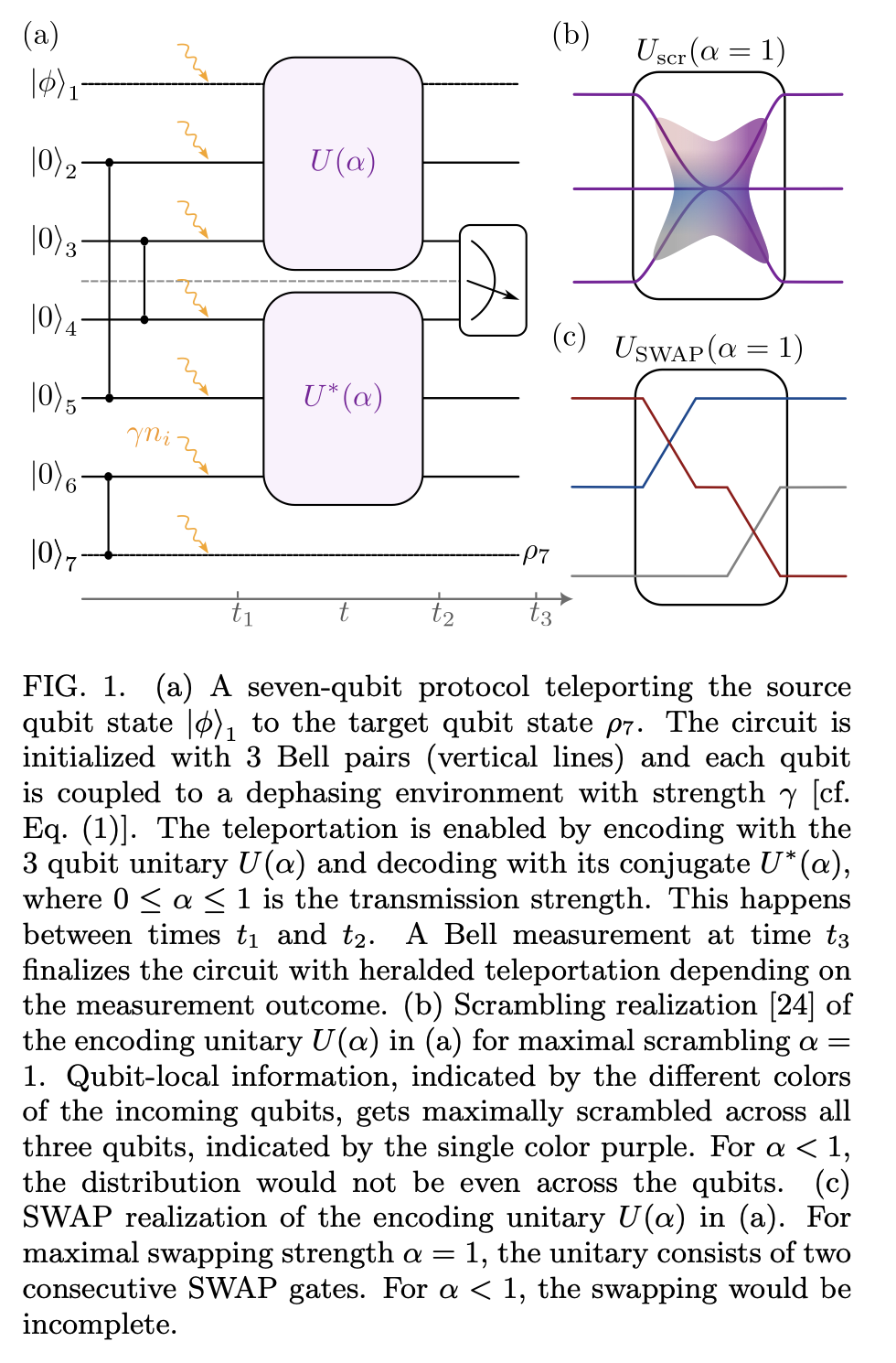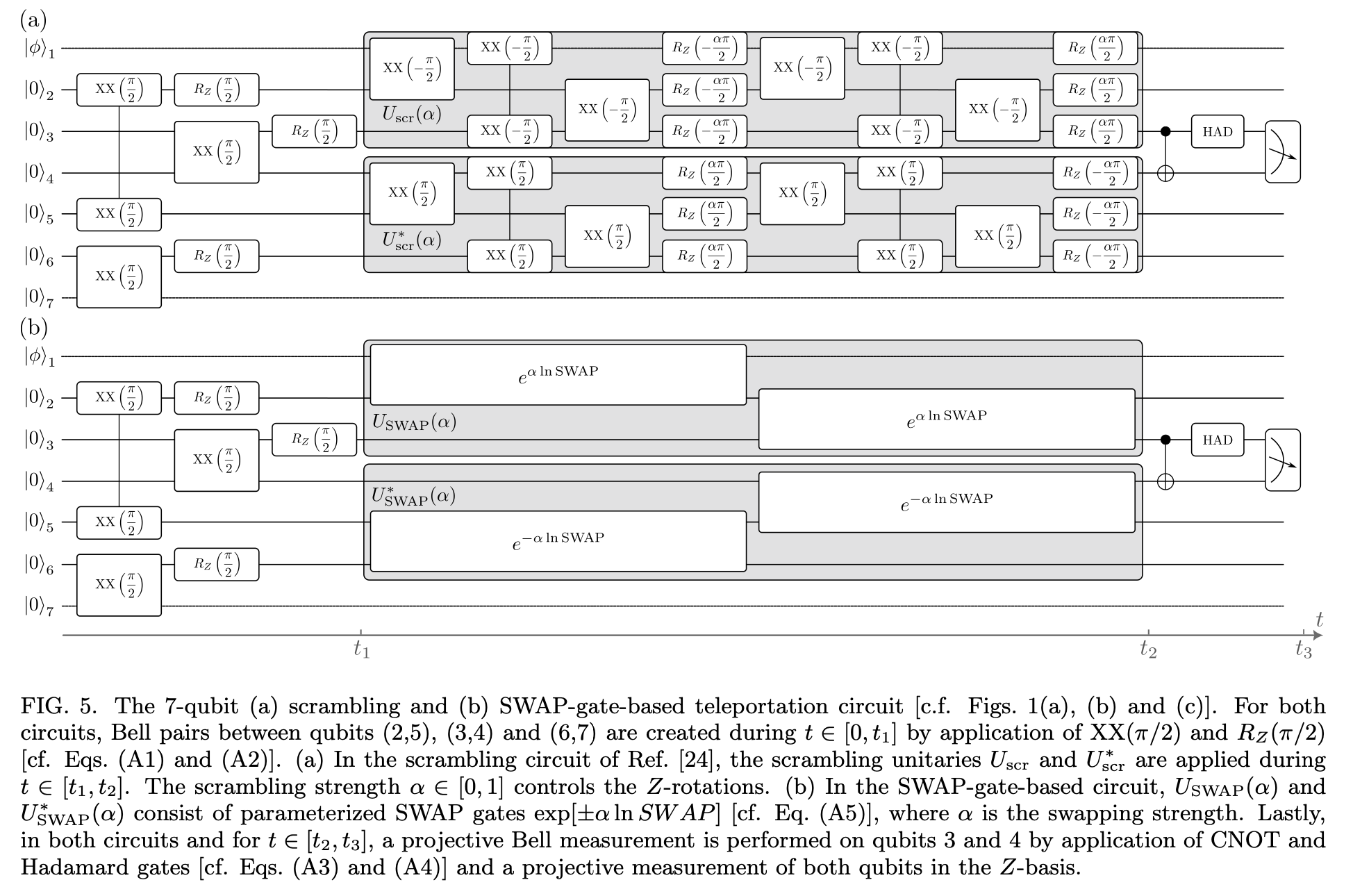Scrambling-induced entanglement suppression in noisy quantum circuits
2784 浏览https://arxiv.org/pdf/2408.02810
Quantum information scrambling is a process happening during thermalization in quantum sys- tems and describes the delocalization of quantum information. It is closely tied to entanglement, a key resource for quantum technologies and an order parameter for quantum many-body phe- nomena. We investigate the effect of dephasing noise on a multi-qubit teleportation protocol that experimentally validated quantum information scrambling. We find that while scrambling enhances information distribution, it is highly noise-sensitive, leading to decreased teleportation fidelity and an increase in the classical mixing of the quantum state. Using negativity as a mixed-state entan- glement measure, we identify two fundamentally different entanglement-scaling regimes: efficient entanglement generation under weak dephasing noise, and entanglement suppression under strong dephasing noise. We show that in the latter, the teleportation consumes more entanglement than the scrambling is able to create. Comparison with a SWAP-gate-based teleportation protocol confirms that the entanglement suppression is a consequence of the scrambling mechanism. Our findings sug- gest that the information dynamics during thermalization is critically affected by dephasing noise, and confirm that in present-day noisy quantum devices, local information exchange is preferable over long-range information scrambling.


